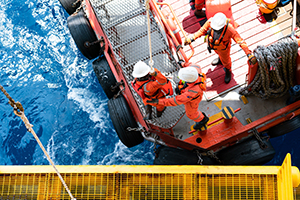How to Prove Negligence in a Jones Act Claim

When you get hurt aboard a vessel, you need more than an incident report—you need proof. Under the Jones Act, you can recover if your employer’s negligence played any part, even a small one, in causing your injury. That “featherweight” causation standard helps, but success still turns on gathering the right evidence, preserving it, and presenting a clear story. Friedman Rodman Frank & Estrada helps crewmembers across South Florida do exactly that. If you are searching for the best Miami Jones Act lawyer to build your claim the right way from day one, our team is ready.
What “Negligence” Means Under the Jones ActNegligence is any unreasonable act or omission that contributes to your injury. Examples include unsafe orders, short staffing, poor training, broken equipment, missing guards, ignored spill hazards, and failure to enforce written safety rules. You do not need to prove gross misconduct. If employer fault played even a slight role, you can pursue damages beyond maintenance and cure.
Who Can Be Negligent—And Why It MattersLiability does not stop with a single supervisor. Negligence can stem from:
- Company policies that prioritize speed over safety
- Inadequate crew complements or unqualified crewmembers
- Vendors or contractors working aboard the vessel
- Shoreside managers who skipped maintenance or parts orders
Identifying all at-fault actors preserves more avenues for your recovery. A best Miami maritime attorney will map every decision chain that touched your job and your injury.
Immediate Evidence to Capture Aboard the VesselSmall facts win big cases. As soon as it is safe, aim to:
- Photograph the scene, tools, deck condition, lighting, and signage
- Note weather, sea state, and vessel motion
- Save PPE involved and tag defective gear
- Record names, roles, and contact details of witnesses
- Request copies of JSA/toolbox talks and work permits
If the company controls the evidence, send a written preservation request. Time and tide erase proof; quick action keeps it.
Medical Proof: Choose the Right Doctor and Remember the Paper TrailCompany medics and forms are not the whole record. You may choose your own shoreside physician. Tell providers exactly how the injury happened and all symptoms—neck, back, headaches, numbness, sleep issues. Detailed notes, imaging, and specialist referrals connect the mechanism of injury to your diagnosis and future need for care. A best Jones Act lawyer coordinates with treating doctors so the medical file speaks clearly as to your injury.
Using Ship Documents to Show FaultVessels generate records every day. Useful materials include logbooks, maintenance and defect reports, safety meeting minutes, corrective action forms, purchase orders, prior incident histories, CCTV, and electronic data from cranes, winches, or engines. Comparing “what the book says” to “what actually happened” often exposes shortcuts and missed inspections.
Unseaworthiness vs. Negligence—Claim Both Where AppropriateNegligence targets employer conduct. Unseaworthiness targets the vessel’s condition—unfit equipment, slippery decks, bad lighting, understaffing, or incompetent crew. Many cases involve both theories. Proving one does not block the other, and together they strengthen settlement leverage.
Mistakes That Can Undercut a Strong ClaimAvoid incident statements drafted by others without reading carefully. Do not downplay symptoms to “tough it out.” Do not post accident commentary on social media. Do not repair or discard damaged gear you may need inspected. A best Miami maritime injury lawyer can field communications so you do not give insurers easy outs.
Damages You Can Pursue Beyond Maintenance and CureJones Act negligence allows recovery for medical care (past and future), lost wages, loss of earning capacity, pain and suffering, disfigurement, and loss of enjoyment of life. Families in fatal cases may seek wrongful death and survival damages. We work with maritime medical experts and economists to quantify long-term consequences—so the number matches the need.
FAQsDo I Have to See the Company Doctor?No. You control your shore-side treatment choices, and a truly independent opinion helps.
What if There Were No Witnesses?Photos, equipment data, logs, and your consistent medical history can prove the case.
I Signed a Statement—Am I Sunk?Not necessarily. Context, language, and conflicting records can minimize its impact.
Can I Be Partly at Fault and Still Recover?Yes. Your recovery may be reduced, but the law still allows compensation when employer negligence played a role.
Why Choose Friedman Rodman Frank & EstradaMaritime cases turn on details—crew rosters, maintenance gaps, policy breaches, and quiet admissions buried in emails. Our Miami team knows where those details live and how to secure them before they disappear. If you want guidance from the best Miami maritime attorney for evidence development and litigation strategy, we bring the tools, experts, and focus your case deserves.
Speak With a Miami Jones Act Lawyer TodayIf you were hurt working aboard a vessel, do not let crucial proof wash away. Friedman Rodman Frank & Estrada can secure maintenance and cure, build a negligence and unseaworthiness case, and pursue full compensation in court when needed. Your consultation is free, and our contingency fee means you owe no attorney’s fees unless and until we obtain a recovery for you. Call 877-448-8585 to talk with a Miami Jones Act lawyer and get a plan tailored to your claim.
 Friedman Rodman Frank & Estrada, P.A. Home
Friedman Rodman Frank & Estrada, P.A. Home
